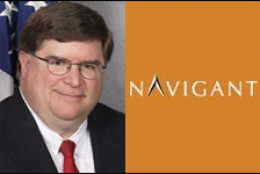Contracts/Awards
-
Agencies have awarded more than $12 billion dollars in energy savings performance contracts (ESPCs) since 1995. Many contractors on ESPCs have reported overall savings. But a new report from the Government Accountability Office says those numbers may be a tad overstated. Frank Rusco is the director of Natural Resources and Environment Issues at the GAO. He joined Tom Temin on the Federal Drive to discuss what auditors found.
June 24, 2015 -
WASHINGTON (AP) — The Supreme Court will decide whether the U.S. Department of Veterans Affairs is complying with a law designed to increase the number of federal contracts awarded to small businesses owned by disabled…
June 23, 2015 -
The multiple-award-contract (MAC) vehicle has been a favorite for many years because it offers agencies a group of pre-approved vendors competing for task orders and can speed up acquisition. But a Bloomberg analysis of the latest contract data shows a shift away from MACs and toward single-award contracts, which has implications for both government and contractors. Paul Murphy is a senior data analyst at Bloomberg Government. He joined the Federal Drive with Tom Temin with more on this new trend.
June 23, 2015 -
The Senate packed a lot into its version of the 2016 Defense authorization bill before final passage Thursday afternoon, and in a notable break from recent history, the full package passed well before the start of the new fiscal year.
June 22, 2015 -
Sen. Mark Warner (D-Va.) joins in the questioning of how OPM made the decision to award a contract to Winvale for credit monitoring services. The senator and AFGE are hearing from current and former federal employees complaining about the services provided under the $20.7 million deal.
June 19, 2015 -
Government spends 22 percent more on local contractors in the past two years even through a tough budget climate and sequestration. Lexy Kessler is partner in charge of the government contracting practice at Aronson. She tells In Depth with Francis Rose there\'s still room for contractors to grow if they advantage of the right opportunities.
June 18, 2015 -
It only took 15 years for the Office of Federal Procurement Policy to issue guidance for agencies on how best to use reverse auctions. And when OFPP finally did on June 2, it was disappointing to say the least.
June 15, 2015 -
With all the focus on the OPM cyber breach, let\'s not overlook the simple fact that despite what some would call urgent and compelling needs, the government has rules and regulations that still need to be followed.
June 15, 2015 -
What if you\'re paying a fixed price for services, but the contractor starts to fall down on the job? That\'s what happened to the Army in Afghanistan. It hired a company called Mansoor International to provide trucking. Mansoor was paid a fixed price for each trip, but then things started to go wrong. Joe Petrillo, a partner at the law firm Petrillo and Powell, joined Tom Temin on the Federal Drive for more on the case and the lessons learned we turn to procurement attorney Joe Petrillo, a partner at the law firm Petrillo and Powell.
June 11, 2015 -
Brian Miller, managing director in the Disputes and Investigations Practice at Navigant will give us his thoughts on GSA\'s transactional data reporting rule. June 9, 2015
June 09, 2015 -
Joanne Woytek, program manager of the NASA SEWP program, joins host Mark Amtower to talk about SEWP V. June 8, 2015
June 08, 2015 -
A new bill would let companies challenge the agency through an administrative process that promises to be simpler and cheaper than litigation. Witnesses at a congressional hearing said they feared new size standards would alter competition for $200 billion in small-business set asides.
June 08, 2015 -
Etherton and Associates President Jon Etherton and Tom Sisti, senior director and chief legislative counsel for SAP, join host Roger Waldron to talk about a growing movement on Capitol Hill for acquisition reform, and lessons learned from previous reform efforts. June 2, 2015
June 02, 2015 -
Commentary: Larry Allen, president of Allen Federal Business Partners, writes that some of the pricing data initiatives are sending a disheartening message to GSA\'s contracting workforce. The Multiple Award Schedules are not in business to be the Dollar Store, he writes.
June 02, 2015 -
The Supreme Court recently ruled in favor of defense contractor KBR Inc. in a whistleblower suit brought by a former employee. Benjamin Carter accused KBR of defrauding the government over water purification work in Iraq. The justices ruled unanimously that a law extending the time frame for fraud claims committed against the U.S. during wartime doesn\'t apply to civil claims. Brian McLaughlin, a counsel in the Government Contracts Group at the law firm Crowell and Moring, joined Tom Temin on the Federal Drive with more on the lessons learned.
June 01, 2015







